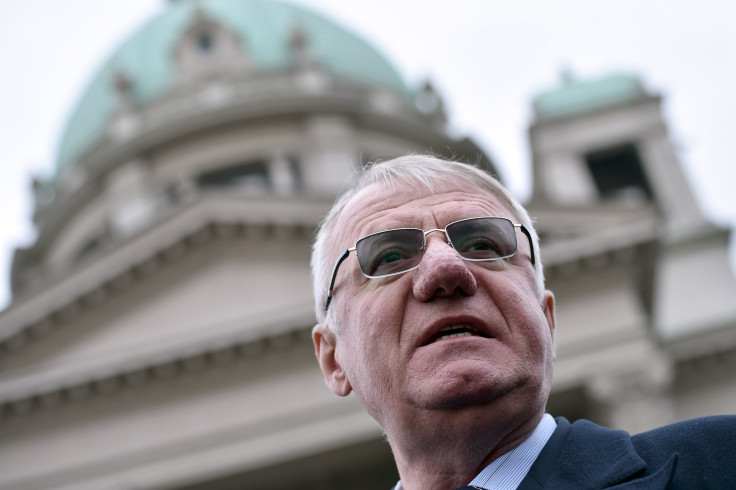UN Tribunal At The Hague Acquits Serbian Ultra-Nationalist Vojislav Šešelj Of War Crimes

Serbian ultra-nationalist Vojislav Šešelj, accused of participating in crimes against humanity and war crimes committed by Serbian forces during the Yugoslav Wars between 1991 and 1993, was cleared of all charges by the United Nations war crimes court in The Hague Thursday. The judgment comes just a week after the court convicted former Bosnian Serb leader Radovan Karadžić of genocide and war crimes.
Šešelj was facing a total of nine counts, including six war crime charges stemming from atrocities committed by Serbian paramilitaries’ in Croatia, Bosnia and the Serbian province of Vojvodina between August 1991 and September 1993.
“With this acquittal on all the nine counts of the indictment the arrest warrant issued by the appeals chamber is rendered moot,” presiding judge Jean-Claude Antonetti said Thursday. “Vojislav Šešelj is now a free man.”
Prosecutors, who now have the right to appeal, allege that Šešelj not only incited ethnic tensions in the region following the collapse of federal Yugoslavia, he also raised an army of volunteers to commit “unspeakable” crimes in his effort to create an ethnically homogenous Serbian state.
“In the end Šešelj did not achieve a Greater Serbia, he managed to achieve a lesser Serbia and gave the world the term ethnic cleansing,” prosecutor Christine Dahl reportedly told the court in 2007.
However, the International Criminal Tribunal for the former Yugoslavia (ICTY), in its ruling, said that the prosecution “failed to prove the existence of a criminal purpose.”
“The majority concluded that the objective of the creation of Greater Serbia was more of a political venture than a criminal project. ... Crimes had been committed by Serbian forces in the process, but that they were not inherently linked to the fulfillment of the purpose of Greater Serbia,” the court said.
Šešelj, who was not present at the court when the judgment was handed down, has consistently denied the allegations. The defiant 61-year-old, who had repeatedly refused to cooperate with the tribunal, was provisionally released in November 2014 on grounds of ill health after spending nearly 12 years in detention, and has since been politically active in Belgrade ahead of the Serbian parliamentary elections later this month.
“This verdict is shameful. It is a defeat for the Hague tribunal and the prosecution,” Croatian Prime Minister Tihomir Orešković reportedly said in response to the ruling.
© Copyright IBTimes 2024. All rights reserved.






















